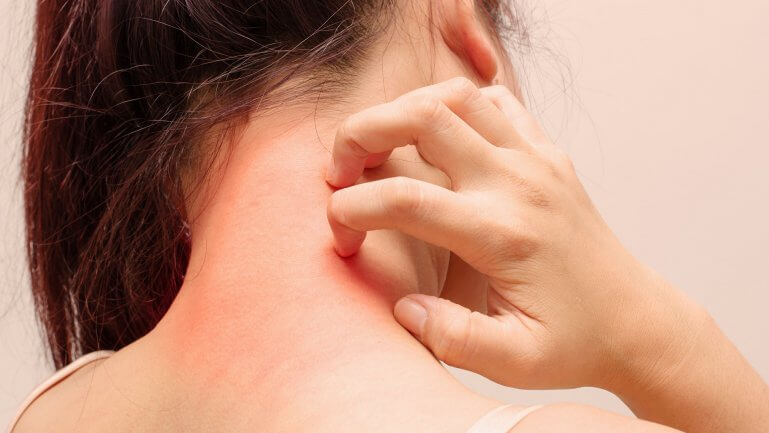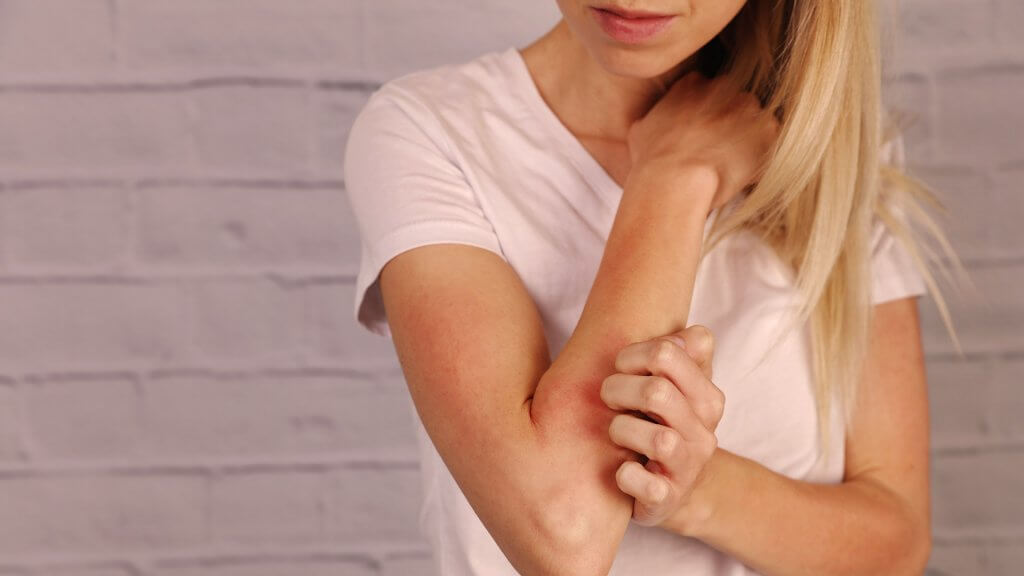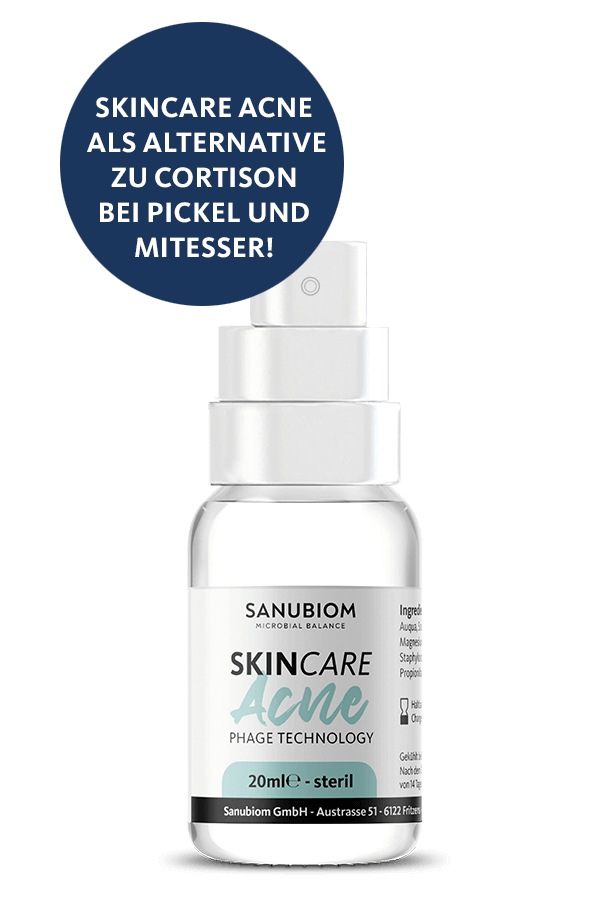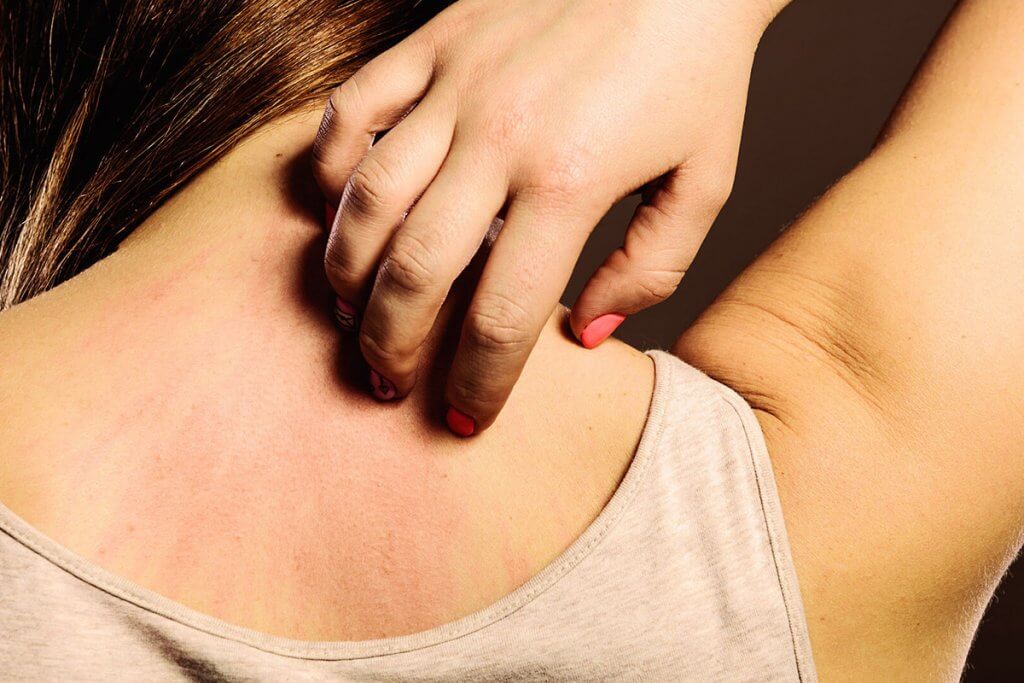Neurodermatitis

Pruritus (from the Latin prurire = “to itch”) is the name given to an unpleasant sensation of the skin that causes scratching. Pruritus should always be investigated further, as it is not only a leading symptom of numerous dermatological diseases, but can also occur in the context of internal, neurological and psychiatric diseases. If the skin burns, tightens or itches for longer than six weeks, doctors speak of chronic itching or pruritus. Sufferers often experience a high level of distress: for example, they scratch themselves or can no longer sleep properly.
Tip 1: Cool itchy skin:
Cooling stressed skin soothes it and relieves itching
Possible options include, for example:
Important: If you have cold urticaria or aquagenic urticaria, you may have to do without it. In these inducible forms of hives, cold and moisture could trigger new flare-ups.
Tip 2: Avoid skin injuries
Cutting fingernails
Although the urge to scratch cannot be suppressed, the skin can be protected from sharp fingernails:
Cutting fingernails: the risk of injury is significantly reduced by filing short nails.
Wear scratching gloves: While sleeping, scratching the itching at night is almost impossible to control. It is advisable to wear soft cotton gloves to significantly reduce the risk of scratching.
Redirect the desire to scratch: To satisfy the need to scratch, the bedspread, pillow or couch should be scratched.

Tip 3: Daily skin care
Daily skin care to combat itching
Dry skin causes redness and cracks that itch. Regular external treatment with greasy lotions and ointments or moisturizing creams such as the SkinCare care line can help.
Important: You should always make sure that the care products you use are suitable for your skin type, have a cooling effect and do not contain any irritating additives or fragrances such as perfume. SkinCare Sensitive is perfect for this
Tip 4: Washing and cleaning
Washing and cleaning against itching
There are a few things to bear in mind when washing and cleaning the skin with soap and water:
Water that is too hot increases itching on the body and stresses the skin, so cool and lukewarm water is better. In addition, the skin should not be exposed to the moisture of the water for too long.
It is best to use moisturizing, alcohol-free cleaning agents and hygiene products.
Always wear gloves when cleaning with soap and alkaline solutions.
Wash laundry with detergent for sensitive skin
Tip 5: Relax
A yoga group
As it is not only external factors that increase itching but also psychological tension, you should try to avoid stress.
It is particularly important to be generally more mindful of your own resilience. Targeted relaxation exercises can help. for example:

SKINCARE ACNE
Probiotic skin protection SkinCare Acne with Phage Technology.
Your skin comes to rest.

What is the body missing when the skin itches?
Itchy and dry skin can have several causes. Reduced sebum production, a lack of skin lipids and natural moisturizing factors unbalance the sensitive skin barrier, which leads to a reduced protective function of the skin. There are various skin conditions that cause pruritus, such as neurodermatitis
Causes of pruritus
If the itching of the skin lasts longer than six weeks, it is referred to as pruritus. Patients often suffer greatly from this: The skin becomes sore and does not allow them to sleep properly. However, pruritus is only a consequence of the actual cause, which usually lies elsewhere in the body. Possible causes include medication, inflammation, allergies, diseases of the kidneys, liver or gall bladder, as well as diabetes, tumors, slipped discs, parasites and neurological diseases. The actual cause of the pruritus is often recognized very late or not at all.
Author: Christian Unterlechner, Dipl.-Ing. (FH), MBA
“From our own experience with neurodermatitis – and the long path of suffering associated with skin conditions like this – we started to look for alternative solutions to drug treatments. We are very happy to share the knowledge and experience that has gone into the years of developing our SkinCare products with you.”
Share post